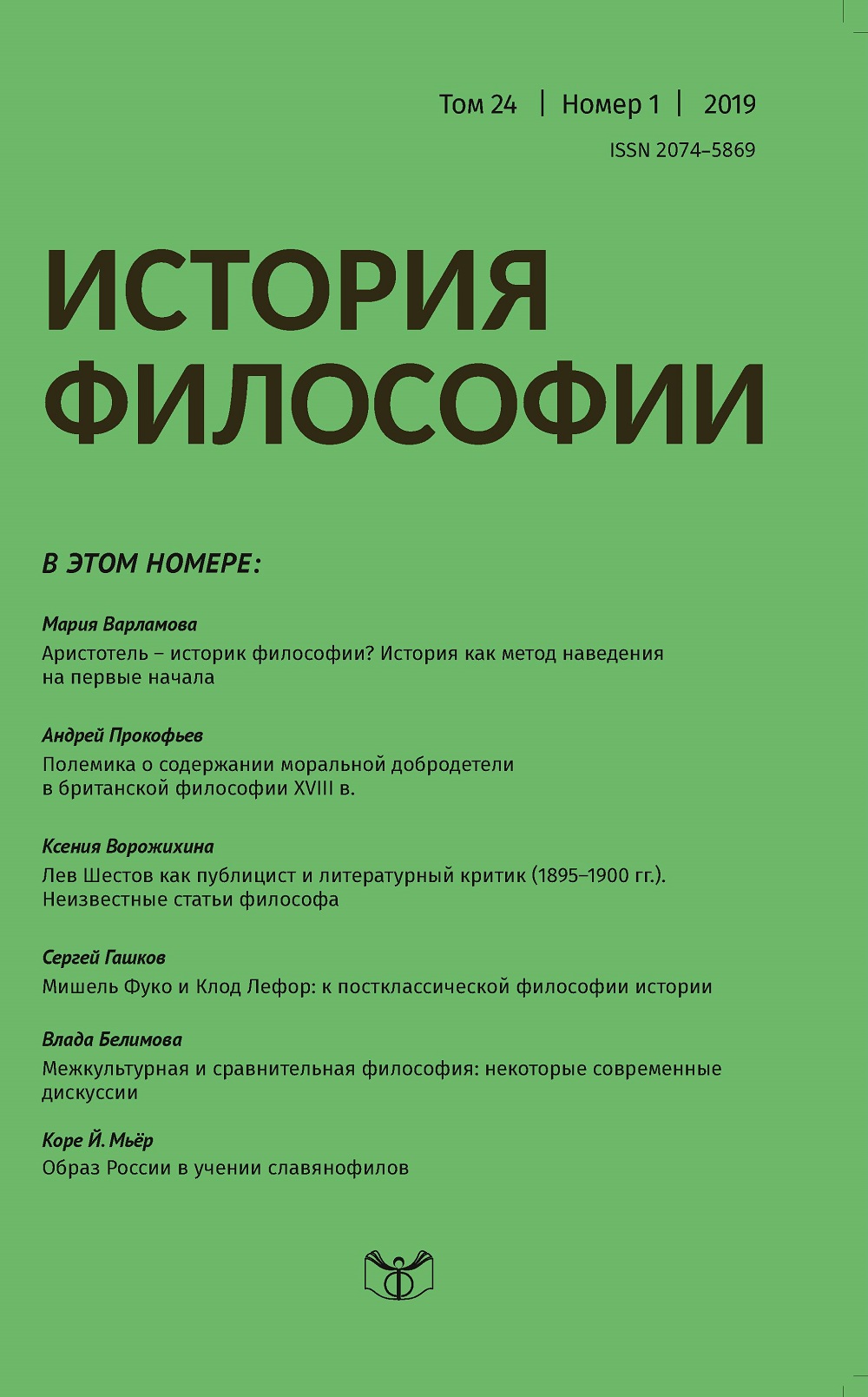Polemics on the Content of Moral Virtue in British Philosophy of the 18th Century
Keywords:
British philosophy of the 18th century, moral virtue, self-regarding duties, other-regarding duties, benevolence, Shaftesbury, J. Gay, J. Butler, J. Balguy, R. PriceAbstract
The paper analyses the eighteenth-century British polemics on the range of duties constitutive to
virtue. The contemporary understanding of morality is concentrated on duties to others (individual
human beings, society, and humanity as a whole). It is a rightful heir of the well-known identification
of moral virtue with benevolence which was characteristic of moral philosophy of Anthony Ashley
Cooper (the Third Earl of Shaftesbury), F. Hatcheson, and J. Gay (though, in a different degree).
Some British thinkers of the period including J. Butler, J. Balguy, and R. Price vigorously opposed
this identification. Their polemical reasoning combined the criticism of the narrow understanding of
morality with the criticism of some protoutilitarian ideas of Shaftsbury, F. Hatcheson, and J. Gay.
The main goals of this paper are 1) to establish relations between this two kinds of critique,
2) to reconstruct particular arguments against the restrictive interpretation of moral virtue,
3) to identify who was a real target of critical comments (in the case of J. Batler, this is not obvious).

